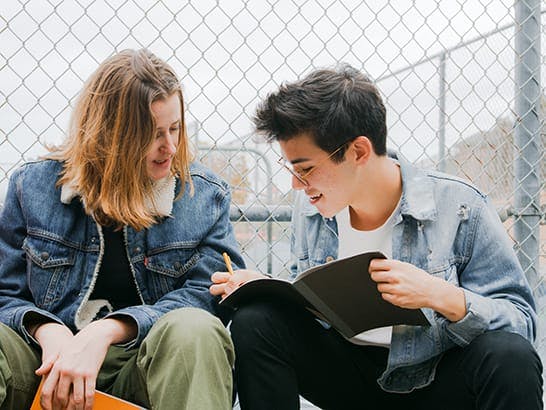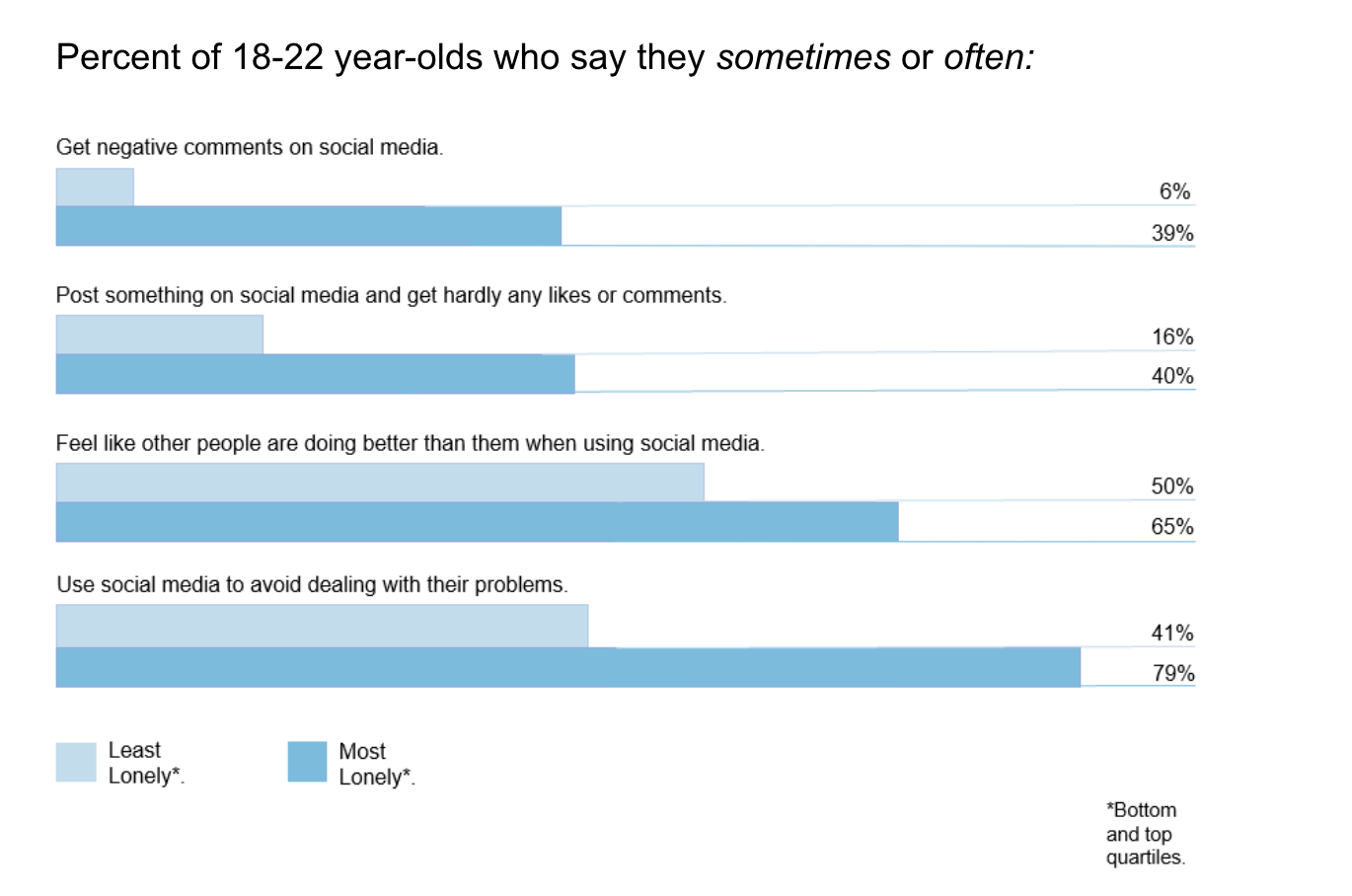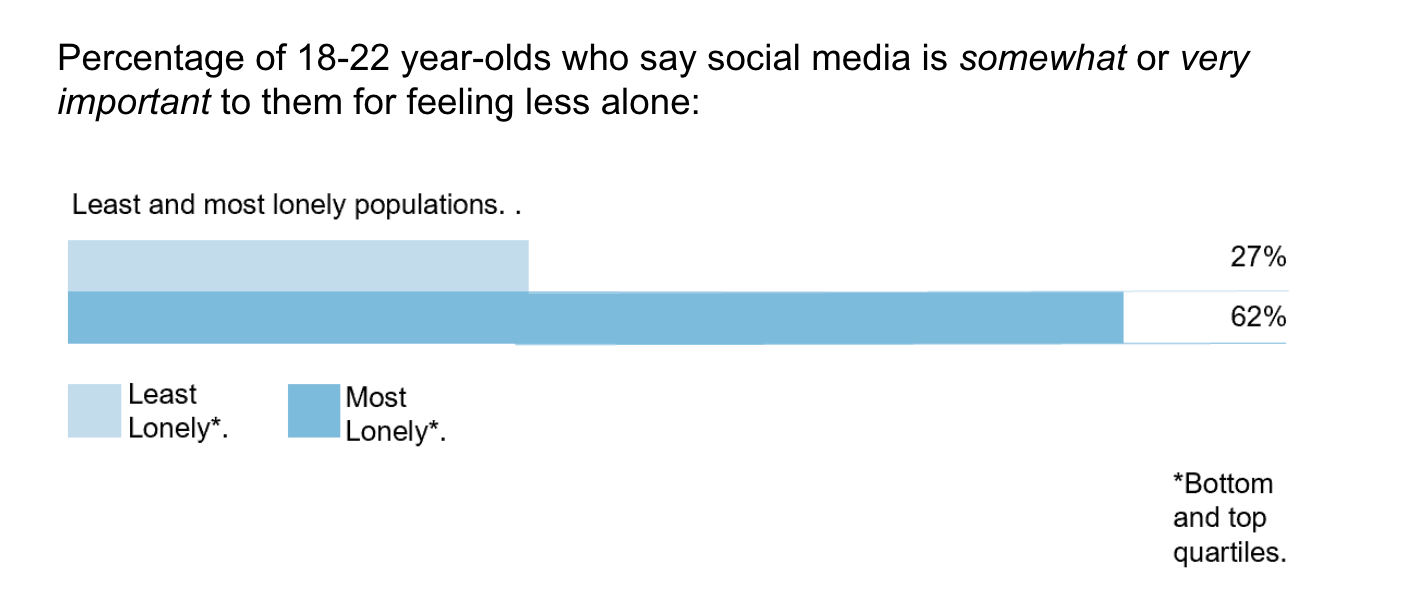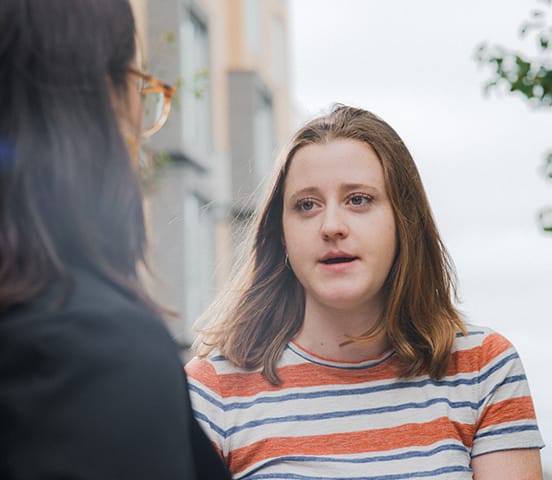Originally posted on hopelab.org See original article>

My relationship with social media isn’t simple, but neither is the relationship between social media and loneliness.
Some days, Instagram is exactly what I need. Seeing a photo of my friend’s graduation gives me pride, a shot of my cousins on vacation makes me happy, and a print from one of my favorite artists, @rarepress, prompts me to work on something of my own. Other times seeing the popular girls from high school at a party makes me feel lonely and unsatisfied, and looking at clothing ads leaves me feeling insecure. My experience is shaped by a complex interplay of how I’m feeling and what I’m seeing.
Our analysis of Hopelab’s National Survey of social media and wellbeing tells a similar story. The survey asked American teens and young adults, ages 14 to 22, about how they use social media and what happens when they use it. As part of my summer internship, I focused on the “young adult” sub-population of survey respondents (18-22 years old), and drilled down into their responses that touched on loneliness. Here’s what we found:
1. First and foremost, there is no evidence from our survey that lonely teens are using social media more frequently than teens who aren’t feeling lonely. You’ve probably seen several headlines over the last few years claiming that frequent exposure to social media causes loneliness. Our data show no relationship between frequency of social media use and loneliness.
2. However, lonelier young people did report having more negative experiences on social media and responding to those experiences more intensely. This is illustrated in the chart below:

We asked participants to share how social media makes things better or worse when they’re feeling depressed, stressed, or anxious.
“It makes me feel left out and like none of my friends want to hang out with me.”
“It makes it seem like everyone else is happier than I am.”
Although these are all-too-common experiences and I deeply relate, that isn’t the whole story.
3. Social media is also a powerful tool that young people use to brighten each other’s day and make meaningful connections. Over a quarter of the least lonely survey respondents, and nearly two-thirds of the most lonely said social media is somewhat or very important to them to feel less alone.
 Some of the loneliest participants described how social media made them feel better.
Some of the loneliest participants described how social media made them feel better.
“I like to look at my favorite things, hobbies I enjoy, people I admire and look up to.”
“Because of who I follow, I can always find positive content on my feed that encourages me and reminds me that I’m not alone.”
I relate to this as well. Like these survey participants, I can find uplifting and inspiring content on my social media feed that helps me find motivation.
The bottom line is that it’s not a simple story. Social media is a messy place where people can have all kinds of experiences depending on how they’re feeling and what they’re seeing. This messy place is full of opportunity and promise to reach and help support lonely teens. We’re not going to stop using social media anytime soon, so why not use it, and the powerful platform it lives on, to access tools and information that achieve social connections IRL?
***

About Lena:
Lena Bertozzi is a senior at UC Berkeley studying Public Health and Data Science. She is passionate about working at the intersection of health, tech, and design to expose and address health inequities with innovative technologies. She is a research intern at Hopelab this summer, working on our project to empower young people to build satisfying social connections.

